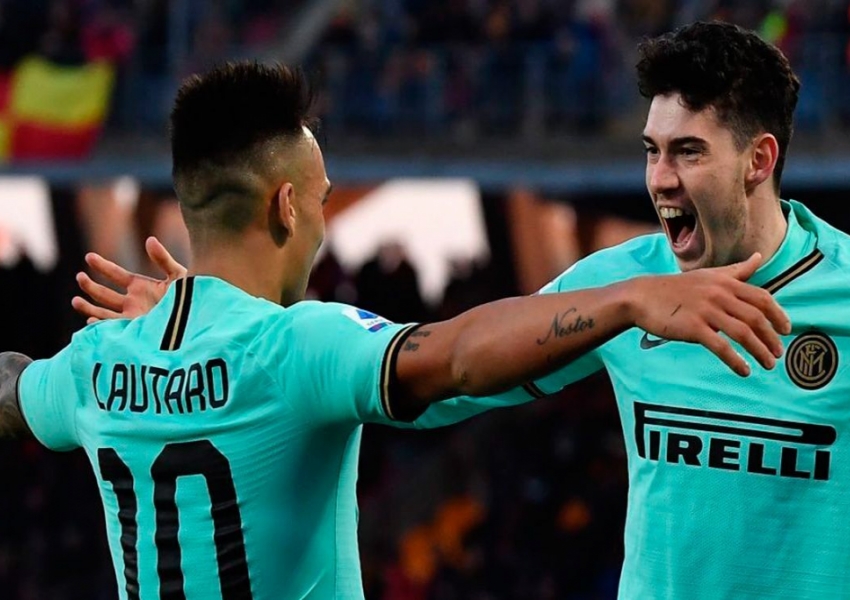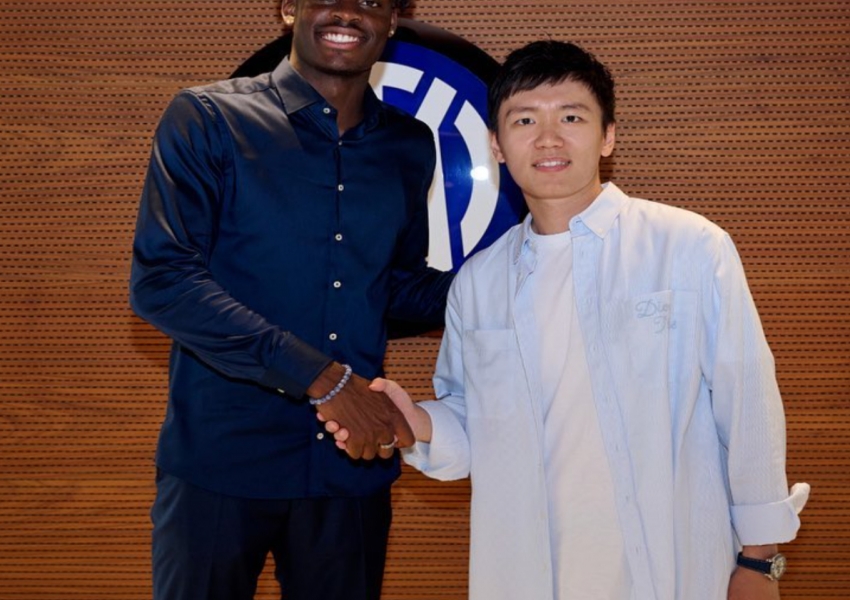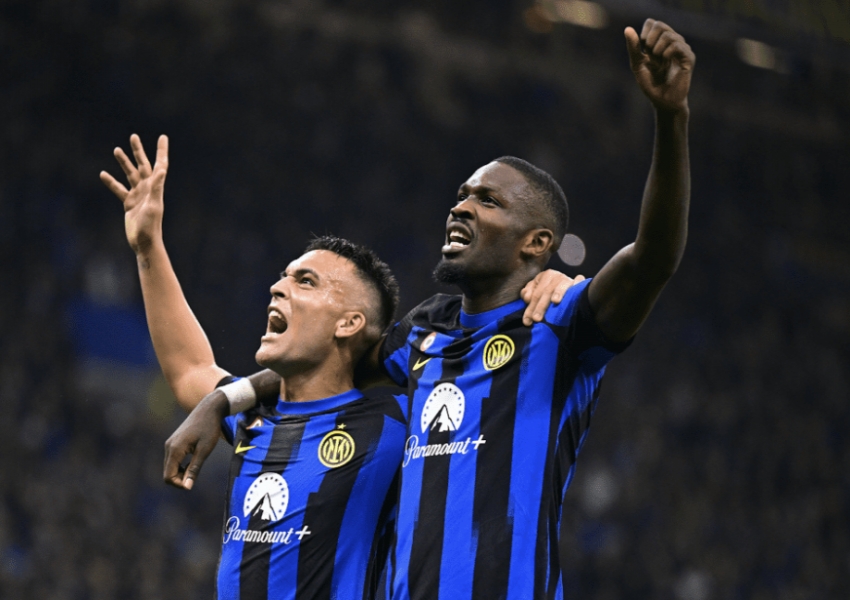Inter Milan's Rising Stars: How Bisseck's Story Reflects the Club's New Talent Development Philosophy
In today’s football landscape, Serie A has become a stepping-stone league, unable to compete with the financial powerhouses of the Premier League, Real Madrid, and Paris Saint-Germain. Inter Milan, once known for their "buy what we need" approach, can no longer sustain such a strategy due to financial constraints. For the current Inter, players like Lautaro Martinez and Alessandro Bastoni exemplify the new model. Lautaro joined Inter as a relative unknown, not even a "semi-finished product" in European terms, without international recognition or experience in European competitions. It was Inter that nurtured him into a superstar, now ranked as the sixth most valuable player in the world. Similarly, when Inter signed Bastoni for €31 million (a deal finalized before his loan to Parma for accounting reasons), he was an unheralded talent, to the point where some journalists criticized the Zhang family for overspending. Yet, Inter developed him into a vice-captain, a core player in their rotation, and a national treasure for Italy.

These players have become leaders at Inter, signaling a shift in the club’s strategy from Massimo Moratti's era of buying established core players to a dual-path approach. Inter must now capitalize on market opportunities to sign high-value reinforcements while also developing their own "semi-finished products" into valuable assets. This latter approach, although riskier, is necessary due to financial constraints and the current football landscape. Inter's ability to develop talent, which has been a shortcoming in the past, has seen improvements under Steven Zhang’s leadership but still cannot be considered a strong point.

The Challenge of Developing Semi-Finished Products
Developing semi-finished products is inherently risky. Even the most astute managers can make mistakes in talent evaluation. The intense scrutiny and lack of patience in Inter’s media environment only add to the challenge. The skepticism around Lautaro’s potential, for instance, is a testament to this unforgiving atmosphere. Failure rates in developing players are naturally higher than success rates. While Inter has successfully groomed talents like Bastoni and Lautaro, there have been more failures, from Gabigol to Dalbert, and João Mário to Valentino Lazaro.

Given that Inter is compelled by circumstances to follow this risky path, establishing a clear principle is crucial: what should be the primary criterion in evaluating players? Fans may have varying preferences—some prioritize technical skills, lauding players like Alexis Sánchez, while others emphasize physical attributes, often praising Denzel Dumfries. However, for young talents, Inter’s coaching staff, as reflected in recent coverage by La Gazzetta dello Sport, prioritize attitude above all.
Attitude Over Talent: The Key Criterion
In examining young talents like Zanotti, Fabbian (with a buy-back clause making him essentially an Inter player), Asllani, and Bisseck, it becomes clear that the coaching staff values attitude the most. These players may not necessarily be the most naturally gifted, but they stand out for their diligence, humility, and hard work. Zanotti, for instance, may not immediately strike as a destined superstar, but his work ethic and positive attitude make him a standout among Inter’s young prospects.
In football, barring injuries and other uncertainties, talent determines a player’s ceiling, but attitude influences their floor. A good attitude increases the likelihood of reaching a reasonable level of success, even if a player does not become a core member of a big team like Inter. At the very least, they can be sold for a profit, helping the club financially.
The Case of Yann Aurel Bisseck
Yann Aurel Bisseck’s story is a prime example of Inter’s emphasis on attitude. During a hard-fought match against Bologna, Bisseck scored and was named man of the match by several media outlets. La Gazzetta dello Sport highlighted a touching story of Bisseck that resonated in Germany. When the COVID-19 pandemic had just ended, Bisseck had the rare opportunity to reunite with his family. However, he received a call from Germany U21 coach Antonio Di Salvo: "I don't know if I can give you playing time, but I want you with us." Bisseck immediately canceled his family reunion and reported to the U21 camp, promising, "Sir, even if you don't let me play a single second, I will still be with you!"
At that time, Bisseck had just overcome a significant injury and initially had to endure the role of a benchwarmer. However, his positive attitude, willingness to work hard in training, and readiness to seize any opportunity impressed the coach and the German public. He eventually became the captain and a key player for the Germany U21 team in the European Under-21 Championship.
Bisseck’s journey at Inter mirrors this story. After transferring to Inter in July, he initially drew significant attention as the captain of the German U21 team. However, before the Champions League match against Salzburg on November 8, he had only played nine minutes in official matches for Inter over nearly half a year. During this period, Bisseck gradually faded from public attention.
Being a benchwarmer can be tough, especially during weeks with two matches, where starters undergo recovery while Bisseck had to train with the youth team. The mental struggle and disappointment were inevitable. If he had reacted like Lazaro or Gabigol, complaining and underperforming in training, his prospects at Inter would have been dim. Instead, Bisseck responded positively, working hard in training and constantly learning. His patience and smile, even in tough times, helped him integrate into the team.
The Future of Inter’s Talent Development
Since November, Bisseck has gradually secured his place in Inter’s rotation. While people praise his technical skills, long legs, dribbling, and heading, his attitude is what stands out the most. This emphasis on attitude will be crucial for Inter as they continue to develop young talents.
For a club with limited financial flexibility, focusing on players' attitudes is a rational strategy. As Inter aims to turn more semi-finished products into valuable assets, fostering a culture of hard work, humility, and perseverance will be key. This approach not only ensures a higher floor for young talents but also aligns with the club’s current financial realities.
The stories of players like Bisseck provide a blueprint for success, demonstrating that with the right attitude, even under difficult circumstances, young players can rise to prominence. As Inter continues to navigate the challenges of modern football, prioritizing attitude over pure talent may well be the foundation for building a competitive and sustainable future.
Copyright Statement:
Author: mrfootballer
Source: Mrfootballer
The copyright of this article belongs to the author. Reproduction is not allowed without permission.
Recommended Blog
- A €30 Million Striker Says Yes to Inter: The Nerazzurri Prepare for Another Frattesi-Style Deal
- Inter Witnesses a Repeat of Lautaro’s World Cup Controversy: South American Star’s Actions Diminish Chances of Staying
- Inter's Starlet Stankovic: The Backbone of the "Platinum Generation"
- Inter Milan’s Options to Replace Acerbi: Popular Choice Faces Challenges
- Comprehensive Scan of Inter Milan’s Two Controversial Figures: Key Promises from the Top Brass and Timely Heartwarming Scenes
- Inter Milan's Dual Strategy to Fund Squad Reinforcements: The Hope Placed on Four Fragile Stars to Reclaim €40 Million
- Moratti Touches Inter Milan Fans Again: His Favorite Player Seizes Opportunity for Promotion
- Inter's Bizarre Substitution Reveals a Frustrating Truth: From Manchester City to Atlético Madrid, What Are They Missing to Reach the Next Level?
- Serie A's Eight Big Value Risers: Inter Milan Claims Three Spots While Dumfries Could See a Turnaround Due to Lukaku
- Inter Milan Aims to Break the 7,083-Day Curse Against Atletico: Learning from Mourinho and Last Season's Lessons
Hot Blog
- English Media: Manchester United Will Win Premier League Title in 2028! History Will Repeat Itself, Two Teams Serve as Inspirations
- 0-2 Double Defeat! China National Team Stuck at 6 Points: No More Direct World Cup Hopes, Two Crucial Matches Ahead
- 4 AM Showdown: Barcelona's Revenge Match! Win = 3-Point Lead Over Real Madrid, Key Players Rested
- China National Football Team Drops 13.6 Points, Slips to 94th in FIFA Rankings: Syria Overtakes, New 9-Year Low
- 0-0 Draw! Japan 12 Shots, 2 Missed One-on-Ones: 8 Matches, 20 Points, Group Winner, Saudi Arabia Stuck at 10 Points in 3rd
- 4-1, Double Win Over Brazil! Argentina Celebrates: World Cup Qualification Secured, 4th Team Globally to Qualify
- Real Madrid Got Lazy: 7 Kilometers Less Running in UCL! Two Superstar Spectators While Barça Outruns Them All
- United Go for Glory: Unbeaten in 10, Fueled by Kobbie Mainoo’s Return, Red Devils Eye Europa League Crown
- Champions League Classic: Barça’s Midfield Maestro Worshipped by Thousands After 11.5KM Marathon
- Champions League Semifinal Odds: Barça at 99%, Real Madrid’s Hopes Dwindle to 6%, PSG Cruise Ahead